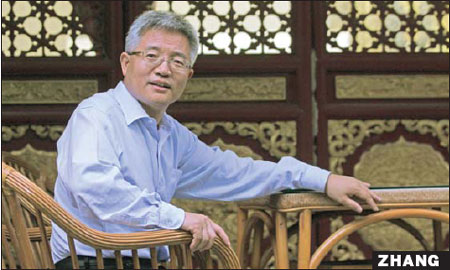Experts' panel


On the reform of state-owned enterprises
Hu Angang, dean of the Institute of Contemporary Chinese Studies
SOEs are a key strength of the Chinese economy and remain drivers of progress.
The private sector should compete against the SOEs but not replace them.
David Shambaugh, professor of political science and international affairs at the George Washington University and author of China Goes Global: The Partial Power.
SOEs are mostly companies that thrive in China and are unable to compete with the global multinationals.
As long as SOEs get the majority of government investment Chinese companies will be followers rather than leaders.
Martyn Davies, chief executive of Frontier Advisory, based in Johannesburg

SOEs have played a vital role since reform and opening up but now need to be reformed.
SOE bosses themselves realize the need for reform is urgent.
Miranda Carr, head of China research at strategic investment research company NSBO
SOE reform not straightforward since certain strategic sectors are natural monopolies
Reform will be difficult because some SOE heads are very powerful figures.
Zhu Hai, committee secretary of the Harbin State-owned Assets Supervision Committee
Reform is about improving management efficiency and not getting rid of SOEs.
There is a need to speed up reform but it is part of a continuous process.
Kerry Brown, executive director of the China Studies Centre at the University of Sydney
The slowdown of China's economy makes SOE reform even more important since these businesses need to become more efficient.
Reforms cannot be put off but it is a question of how quickly and how far the government moves.
Zhang Weiying, professor of economics at the Guanghua School of Management at Peking University
Privatization program in the UK led by Margaret Thatcher should be seen as a blueprint.
Many SOEs are already listed and so they can be privatized in stages by the government diluting its stake.

(China Daily European 07/05/2013 page7)
Today's Top News
- Xi stresses improving long-term mechanisms for cyberspace governance
- Experts share ideas on advancing human rights
- Japan PM's remarks on Taiwan send severely wrong signal
- Key steps to boost RMB's intl standing highlighted
- Sustained fight against corruption urged
- Xi calls for promotion of spirit of volunteerism






























